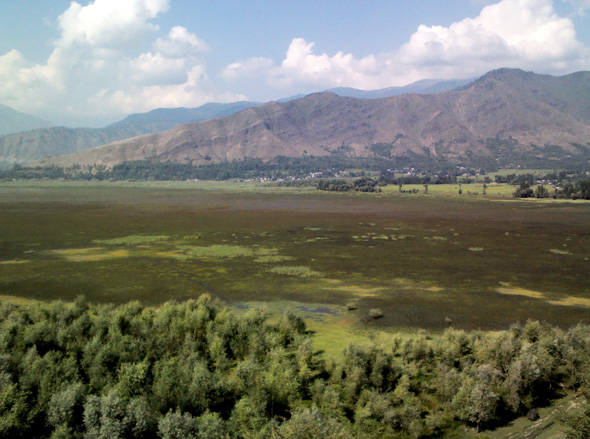-
Manipadma Jena, Inter Press Service
A Lake of Hope and Conflict
October 4, 2012 By Wilson Center Staff
The original version of this article, by Manipadma Jena, appeared on Inter Press Service.
Parvez Ahmad Dar climbs three hours to reach the hilltop, generator-equipped tourist center in Ajaf village, 35 kilometers from Srinagar, to recharge his mobile phone.
The 46-year-old president of the Wular Valley People’s Welfare Forum is in high demand as an activist and organizer – he cannot allow the long power outages in northern India’s Kashmir Valley to cut off communication with his constituency.
The Forum was set up earlier this year to protect livelihoods dependent on the massive Wular Lake located in Kashmir’s Bandipora district, a wetland of international importance protected under the Ramsar Convention, following plans to begin conservation work in the area.
“The major deliverable of the 3.86-billion rupee (69-million-dollar) Wular conservation project is improving the lake’s water holding capacity and flow,” Abdul Razak Khan, a senior state forest department official heading the Wular conservation project, told IPS.
“This is critical for enhancing Kashmir’s hydropower generation, besides helping the lake regain biodiversity and improving local livelihoods.”
But this is easier said than done. Local leaders like Dar will have a hard time reconciling the many competing claims of community members, conservationists, and politicians, all of whom see the lake as a site of immense economic, environmental, and strategic importance.
Continue reading on Inter Press Service.
Photo Credit: Wular Lake, courtesy of Wikimedia Commons.
Topics: Asia, biodiversity, conflict, conservation, development, energy, environment, environmental security, India, livelihoods, Pakistan, security, water
 A Publication of the Stimson Center.
A Publication of the Stimson Center.



